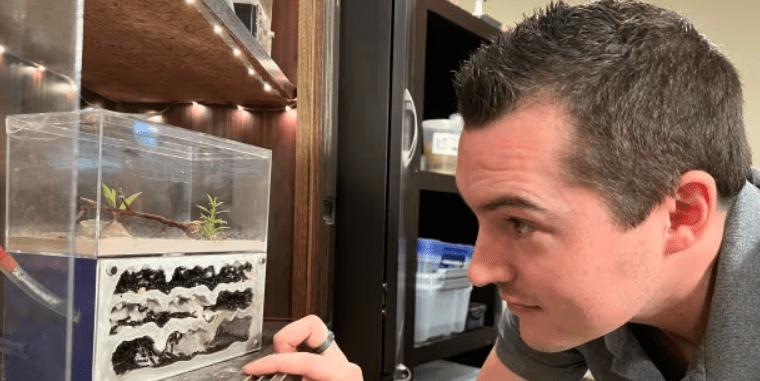3 Crucial Factors to Keep In Mind When Keeping Ants

Ant keeping can be a joyful and informative activity that allows you to see the intriguing behaviors of these hardworking insects up close. However, keeping a healthy and successful ant colony necessitates careful consideration of several critical factors. Understanding these important components for ant keeping, from habitat construction to feeding practices, is critical for the health and longevity of your ant colony.
Environment and Habitat Configuration
The most important step in ant keeping is to provide your ants with a proper environment. Select an ant farm or enclosure that is suitable for your ant species’ needs. Think about things like substrate type, ventilation, humidity levels, and nesting area. While some ants do better in humid situations with organic resources like soil or coconut fiber, others prefer arid settings with sandy foundations.
To keep the environment under control and stop ants from leaving, make sure the habitat is safe and secure. Make sure the ant colony has consistent environmental conditions by routinely checking the humidity and temperature. Because they are sensitive to environmental changes, ants may need particular circumstances in order to flourish.
Nutrition and Feeding
Your ant colony’s health and well-being depend on proper feeding. Ants need a diet that is well-balanced that includes carbs, proteins, lipids, and vitamins. Provide a range of food sources, such as commercial ant food, sugar water, honey, fruits, vegetables, and insects. Keep an eye on your ant species’ feeding habits and modify the meal to suit their dietary requirements and preferences.
Steer clear of feeding your ants too much or too little, since both can cause health problems and disturbances in the colony. Food should be served in modest portions to avoid spoiling and should be taken out as soon as possible to preserve cleanliness. Try a variety of foods to find your ants’ favorite foods and make sure they eat a varied and healthy diet.
Colony Management and Observation
Ant behavior must be regularly observed and monitored for efficient colony management. Every day, spend some time observing your ant colony and recording behaviors like feeding, building nests, and tending to the young. Use a macro lens on your camera or a magnifying glass to examine ants up close and learn about their complex behaviors.
Record shifts in worker activity, reproductive events, and population size to monitor colony growth and development. Identify symptoms of illness, odd behavior, or decreased activity as indicators of stress or health problems. Make quick adjustments to the diet, habitat, or environmental elements if there are any problems to guarantee the health of your ant colony.





